#Baudolino
Quote
I devoted my nights to imagining other worlds. A bit with the help of wine, and a bit with that of the green honey. There is nothing better than imagining other worlds to forget the painful one we live in. At least so I thought then. I hadn’t yet realized that, imagining other worlds, you end up changing this one.
Umberto Eco, Baudolino
443 notes
·
View notes
Text
“What is life if not the shadow of a fleeting dream?”
― Umberto Eco, Baudolino
10 notes
·
View notes
Text
i absolutely adored the name of the rose and now i have to decide if i should read baudolino or foucault’s pendul next
1 note
·
View note
Note
22 and 29 from dig a little deeper?
Do you like spicy food?
Not at all, I can't even stand pepper or much salt. I know, in a weirdo.
Do you like reading? What was the last thing you read?
Very much so, I'm currently reading "Baudolino" by Umberto Eco, "The New Testament: A Historical Introduction to The Early Christian" by Bart Ehrman and reading again "Mrs. Dalloway" from Virginia Woolf.
#thank you for asking#thank you anon#Anon ask#thank you#thanks for the ask!#ask questions#ask game#Tumblr game#anon questions#feel free to ask questions#ask me a question#spicy food#sorry everyone#I dont like spicy food#At all#reading#love books#Baudolino#bart ehrman#atheisim#religion is a mental illness#rationalism#Faith is a cognitive disease#virginia woolf#mrs dalloway
1 note
·
View note
Text
Queste e altre orrendissime cose avevano visto, ma le meraviglie dell'Oriente mai, come se tutti coloro che ne avevano scritto fossero dei gran bastardi
"Sino ad allora avevamno visto deserti, sterpaglia, massicci che non si poteva neppure riposare sulle pietre perché si cuocevano le natiche, le uniche città che avevano incontrato erano fatte con casupole miserabili, e abitate da gentaglia ripugnante, come a Colandiofonta dove avevano visto gli artabanti, uomini che camminano proni come le pecore, a Iambut, dove speravano di riposarsi dopo avere attraversato pianure bruciate, e le donne, se pur non erano belle, non erano neppure troppo brutte, ma avevano scoperto che, fedelissime ai loro mariti, tenevano serpenti velenosi nella vagina per difendere la loro castità - e almeno lo avessero detto prima, ma no, una aveva finto di concedersi al Poeta, che per poco non avrebbe dovuto votarsi a castità perpetua, e buon per lui che aveva sentito il sibilo e aveva fatto un balzo all'indietro. Presso le paludi di Cataderse avevano incontrato uomini coi testicoli lunghi fino alle ginocchia, e a Necuveran, uomini nudi come bestie selvagge, che si accoppiavano per strada come i cani, il padre si univa con la figlia e il figlio con la madre. A Tana avevano incontrato antropofagi, che per fortuna non mangiavano gli stranieri, che gli facevano schifo, ma solo i loro bambini. Presso il fiume Arlon erano capitati in un villaggio dove gli abitanti danzavano intorno a un idolo e con coltelli affilati si infliggevano ferite in tutte le membra, poi l'idolo era stato messo su un carro e portato per le strade, e molti di coloro si buttavano con allegrezza sotto le ruote del carro spezzandosi gli arti fino a morirne. A Salibut avevano attraversato un bosco infestato da pulci grosse come rane, a Cariamaria avevano incontrato degli uomini pelosi che latravano e neppure Baudolino poteva capire la loro lingua, e donne con denti di cinghiali, capelli sino ai piedi e coda di vacca.
Queste e altre orrendissime cose avevano visto, ma le meraviglie dell'Oriente mai, come se tutti coloro che ne avevano scritto fossero dei gran bastardi".
#umbertoeco#eco#baudolino#pretegianni#presbyteriohannes#letteratura#literature#italianliterature#colandiofonta#iambut#graal#sacrograal#gradale#federicobarbarossa#tana#oriente#cannibalismo#cannibalism#cariamaria#arlon#cataderse#necuveran#bastardi#medioevo#romanzo#romance#romanzostorico#italia#italy#italiano
1 note
·
View note
Text
Reading a book and not being at a beach is weird but I wanna train my brain to get comfy in my room 💪😤
8 notes
·
View notes
Text
what were my 2023 favourite books?
[tagged by @girldante <3]
the first man - albert camus
camus's last, posthumous, and incomplete novel. a moving masterpiece, blocked forever in its chrysalis-like stage (due to the sudden death of its author). it's an autobiographical work (though the names of the real life characters are changed by camus), and it shows such a deep, almost desperate, love for life, for the world, for its people. camus annotated, while writing: "the book should have a big weight of objects and flesh". and... it does. this book has such profound colors; such raw scenes; such warm sparks of life. i was weeping while i read the last pages
the name of the rose - umberto eco
everybody knows it. a delightfully dark and intoxicating novel. eco moves freely in the middle ages like a native to that time period, weaving an intricate yet captivating mystery. i loved the setting, i adored the characters and i surprisingly had so. much. fun. i remember how i was going through my day just waiting to have a few hours for myself to continue reading the name of the rose. i was quite addicted to it and i'm quite fond of it now...
ada or ardor - nabokov
i loved this book. i also hated it. it's such an intricate (yet intriguing) novel, with a unique, dense (yet gorgeous) language and it took me quite long to finish it. i love how nabokov writes. i also hate it. in ada everything is double, everything is ambiguous, everything has a shadow, a reference, a reflection. as i went on i struggled to keep at nabokov's pace, but the moment i caught his rhythm i found myself lost in marvel. it's an extraordinary novel and some bits of it struck me as unparalleled beauty. while frustrating at moments, as someone else said: "[ada] demands a lover patience". i couldn't help but falling a bit in love for this perverse yet extraordinary book.
the mountain giants - luigi pirandello
i don't know what was with me, 2023 and unfinished works, but the mountain giants is pirandello's last, posthumous and incomplete play. to me it's one of pirandello's most charming works. a reflection on theatre, but also on art itself, on its truthfulness, on its means, on limits. the finale, even if only sketched, is haunting (i think i would do anything to read what pirandello actually intended to write in the last act). i don't know how to describe the sheer wonder that I felt going through this play.
tags: @iluz @transaeneas @penteoo
#my english skills quite suck rn but sticazzi#i could have added other books that i really enjoyed reading last year (baudolino for example! or the cosmicomics...)#but these four were the ones that in one way or another moved me#tag game
4 notes
·
View notes
Text
every umberto eco book i finish leaves me fundamentally a different person
#my posts#and I've only read 2!!!! but htey seem to be designed to go for my jugular#just finished baudolino and loved it so much (aka why im making a post shouting into the#void#a book about what is history and obejctive truth and should we really place all that much value in it set in a medieval framework???#mr eco this is too much#i know that his books aren't for everyone but im surprised#that the name of hte rose was the most popular because that goes deep into monastic philosophy#which of course i love but isn't the most accesible#anyway i just wish he wrote women as characters but oh well no one's perfect
2 notes
·
View notes
Text
Pentiment's Complete Bibliography, with links to some hard-to-find items:
I've seen some people post screenshots of the game's bibliography, but I hadn't found a plain text version (which would be much easier to work from), so I put together a complete typed version - citation style irregularities included lol. I checked through the full list and found that only four of the forty sources can't be found easily through a search engine. One has no English translation and I'm not even close to fluent enough in German to be able to actually translate an academic article, so I can't help there. For the other three (a museum exhibit book, a master's thesis, and portions of a primary source that has not been entirely translated into English), I tracked down links to them, which are included with their entries on the list.
If you want to read one of the journal articles but can't access it due to paywalls, try out 12ft.io or the unpaywall browser extension (works on Firefox and most chromium browsers). If there's something you have interest in reading but can't track down, let me know, and I can try to help! I'm pretty good at finding things lmao
Okay, happy reading, love you bye
Beach, Alison I. Women as Scribes: Book Production and Monastic Reform in Twelfth-Century Bavaria. Cambridge Univeristy Press, 2004.
Berger, Jutta Maria. Die Geschichterder Gastfreundschaft im hochmittel alterlichen Monchtum: die Cistercienser. Akademie Verlag GmbH, 1999. [No translation found.]
Blickle, Peter. The Revolution of 1525. Translated by Thomas A. Brady, Jr. and H.C. Erik Midelfort. The Johns Hopkins University Press, 1985.
Brady, Thomas A., Jr. “Imperial Destinies: A New Biography of the Emperor Maximilian I.” The Journal of Modern History, vol 62, no. 2., 1990. pp.298-314.
Brandl, Rainer. “Art or Craft: Art and the Artist in Medieval Nuremberg.” Gothic and Renaissance Art in Nuremberg 1300-1550. The Metropolitan Museum of Art, 1986. [LINK]
Byars, Jana L., “Prostitutes and Prostitution in Late Medieval Bercelona.” Masters Theses. Western Michigan University, 1997. [LINK]
Cashion, Debra Taylor. “The Art of Nikolaus Glockendon: Imitation and Originality in the Art of Renaissance Germany.” Journal of Historians of Netherlandish Art, vol 2, no. 1-2, 2010.
de Hamel, Christopher. A History of Illuminated Manuscripts. Phaidon Press Limited, 1986.
Eco, Umberto. The Name of the Rose. Translated by William Weaver. Mariner Books, 2014.
Eco, Umberto. Baudolino. Translated by William Weaver. Mariner Books, 2003.
Fournier, Jacques. “The Inquisition Records of Jacques Fournier.” Translated by Nancy P. Stork. Jan Jose Univeristy, 2020. [LINK]
Geary, Patrick. “Humiliation of Saints.” In Saints and their cults: studies in religious sociology, folklore, and history. Edited by Stephen Wilson. Cambridge University Press, 1985. pp. 123-140
Harrington, Joel F. The Faithrul Executioner: Life and Death, Honor and Shame in the Turbulent Sixteenth Century. Farrar, Straus and Giroux, 2013.
Hertzka, Gottfired and Wighard Strehlow. Grosse Hildegard-Apotheke. Christiana-Verlag, 2017.
Hildegard von Bingen. Physica. Edited by Reiner Hildebrandt and Thomas Gloning. De Gruyter, 2010.
Julian of Norwich. Revelations of Divine Love. Translated by Barry Windeatt. Oxford Univeristy Press, 2015.
Karras, Ruth Mazo. Sexuality in Medieval Europe: Doing Unto Others. Routledge, 2017.
Kerr, Julie. Monastic Hospitality: The Benedictines in England, c.1070-c.1250. Boudell Press, 2007.
Kieckhefer, Richard. Forbidden rites: a necromancer’s manual of the fifteenth century. Sutton, 1997.
Kuemin, Beat and B. Ann Tlusty, The World of the Tavern: Public Houses in Early Modern Europe. Routledge, 2017.
Ilner, Thomas, et al. The Economy of Duerrnberg-Bei-Hallein: An Iron Age Salt-mining Center in the Austrian Alps. The Antiquaries Journal, vol 83, 2003. pp. 123-194
Lang, Benedek. Unlocked Books: Manuscripts of Learned Magic in the Medieval Libraries of Central Europe. The Pennsylvania State University Press, 2008
Lindeman, Mary. Medicine and Society in Early Modern Europe. Cambridge University Press, 2019.
Lowe, Kate. “’Representing’ Africa: Ambassadors and Princes from Christian Africa to Renaissance Italy and Portugal, 1402-1608.” Transactions of the Royal Historical Society Sixth Series, vol 17, 2007. pp. 101-128
Meyers, David. “Ritual, Confession, and Religion in Sixteenth-Century Germany.” Archiv fuer Reformationsgenshichte, vol. 89, 1998. pp. 125-143.
Murat, Zuleika. “Wall paintings through the ages: the medieval period (Italy, twelfth to fifteenth century).” Archaeological and Anthropological Sciences, vol 23, no. 191. Springer, October 2021. pp. 1-27.
Overty, Joanne Filippone. “The Cost of Doing Scribal Business: Prices of Manuscript Books in England, 1300-1483.” Book History 11, 2008. pp. 1-32.
Page, Sophie. Magic in the Cloister: Pious Motives, Illicit Interests, and Occullt Approaches to the Medieval Universe. The Pennsylvania State University Press, 2013.
Park, Katharine. “The Criminal and the Saintly Body: Autopsy and Dissectionin Renaissance Italy.” Renaissance Quarterly, vol 47, no. 1, Spring 1994. pp. 1-33.
Rebel, Hermann. Peasant Classes: The Bureaucratization of Property and Family Relations under Early Habsburg Absolutism, 1511-1636. Princeton University Press, 1983.
Rublack, Ulinka. “Pregnancy, Childbirth, and the Female Body in Early Modern Germany.” Past & Present,vol. 150, no. 1, February 1996.
Salvador, Matteo. “The Ethiopian Age of Exploration: Prester John’s Discovery of Europe, 1306-1458.” Journal of World History, vol. 21, no. 4, 2011. pp.593-627.
Sangster, Alan. “The Earliest Known Treatise on Double Entry Bookkeeping by Marino de Raphaeli.” The Accounting Historians Journal, vol. 42, no. 2, 2015. pp. 1-33.
Throop, Priscilla. Hildegarde von Bingen’s Physica: The Complete English Translation of Her Classic Work on Health and Healing. Healing Arts Press, 1998.
Usher, Abbott Payson. “The Origins of Banking: The Brimitive Bank of Deposit, 1200-1600.” The Economic History Review, vol. 4, no. 4. 1934. pp.399-428.
Waldman, Louis A. “Commissioning Art in Florence for Matthias Corvinus: The Painter and Agent Alexander Formoser and his Sons, Jacopo and Raffaello del Tedesco.” Italy and Hungary: Humanism and Art in the Early Renaissance. Edited by Peter Farbaky and Louis A. Waldman, Villa I Tatti, 2011. pp.427-501.
Wendt, Ulrich. Kultur and Jagd: ein Birschgang durch die Geschichte. G. Reimer, 1907.
Whelan, Mark. “Taxes, Wagenburgs and a Nightingale: The Imperial Abbey of Ellwangen and the Hussite Wars, 1427-1435.” The Journal of Ecclesiastical History, vol. 72, no. 4, 2021, pp.751-777.
Wiesner-Hanks, Merry E. Women and Gender in Early Modern Europe. Cambridge University Press, 2008.
Yardeni, Ada. The Book of Hebrew Script: History, Palaeography, Script Styles, Calligraphy & Design. Tyndale House Publishers, 2010.
309 notes
·
View notes
Text

I typed up the Pentiment bibliography for my own use and thought I’d share it here too. In case anyone else is fixated enough on this game to embark on some light extra-curricular reading
I haven’t searched for every one of these books but a fair few can be found via one of the following: JSTOR / archive.org / pdfdrive.com / libgen + libgen.rocks; or respective websites for the journal articles.
List below the cut!
Beach, Alison I, Women as Scribes: Book Production and Monastic Reform in Twelfth-Century Bavaria. Cambridge University Press, 2004
Berger, Jutta Maria. Die Geschichte der Gastfreundschaft im hochmittelalterlichen Mönchtum die Cistercienser. Akademie Verlag GmbH, 1999
Blickle, Peter. The Revolution of 1525. Translated by Thomas A. Brady, Jr. and H.C. Erik Midelfort. The Johns Hopkins University Press, 1985
Brady, Thomas A., Jr. “Imperial Destinies: A New Biography of the Emperor Maximilian I.” The Journal of Modern History, vol.62, no.2, 1990. pp. 298-314
Brandl, Rainer. “Art or Craft? Art and the Artist in Medieval Nuremberg.” Gothic and Renaissance Art in Nuremberg 1300-2550. The Metropolitan Museum of Art, 1986
Byars, Jana L., “Prostitutes and Prostitution in Late Medieval Barcelona.” Masters Theses. Western Michigan University, 1997
Cashion, Debra Taylor. “The Art of Nikolaus Glockendon: Imitation and Originality in the Art of Renaissance Germany.” Journal of Historians of Netherlandish Art, vol.2, no.1-2, 2010
de Hamel, Christopher. A History of Illuminated Manuscripts. Phaidon Press Limited, 1986
Eco, Umberto. The Name of the Rose. Translated by William Weaver. Mariner Books, 2014
Eco, Umberto. Baudolino. Translated by William Weave. Boston, Mariner Books, 2003
Fournier, Jacques. “The Inquisition Records of Jacques Fournier.” Translated by Nancy P. Stork, San Jose University, 2020
Geary, Patrick. “Humiliation of Saints.” In Saints and their cults: studies in religious sociology, folklore, and history. Edited by Stephen Wilson. Cambridge University Press, 1985. pp. 123-140
Harrington, Joel F. The Faithful Executioner: Life and Death, Honor and Shame in the Turbulent Sixteenth Century. Farrar, Straus and Giroux, 2013
Hertzka, Gottfied and Wighard Strehlow. Große Hildegard-Apotheke. Christiana-Verlag, 2017
Hildegard von Bingen. Physica. Edited by Reiner Hildebrandt and Thomas Gloning. De Gruyter, 2010
Julian of Norwich. Revelations of Divine Love. Translated by Barry Windeatt. Oxford University Press, 2015
Karras, Ruth Mazo. Sexuality in Medieval Europe: Doing Unto Others. Routledge, 2017
Kerr, Julie. Monastic Hospitality: The Benedictines in England, c.1070-c.1250. Boydell Press, 2007
Kieckhefer, Richard. Forbidden rites: a necromancer's manual of the fifteenth century. Sutton, 1997
Kümin, Beat and B. Ann Tlusty. The World of the Tavern: Public Houses in Early Modern Europe. Routledge, 2017
Ilner, Thomas, et al. The Economy of Dürnberg-Bei-Hallein: an Iron Age Salt-mining Centre in the Austrian Alps. The Antiquaries Journal, vol. 83, 2003. pp. 123-194
Làng, Benedek. Unlocked Books: Manuscripts of Learned Magic in the Medieval Libraries of Central Europe. The Pennsylvania State University Press, 2008
Lindeman, Mary. Medicine and Society in Early Modern Europe. Cambridge University Press, 2010
Lowe, Kate. “'Representing' Africa: Ambassadors and Princes from Christian Africa to Renaissance Italy and Portugal, 1402-1608.” Transactions of the Royal Historical Society Sixth Series, vol. 17, pp. 101-128
Meyers, David. “Ritual, Confession, and Religion in Sixteenth-Century Germany.” Archiv für Reformationsgeschichte, vol. 89, 1998. pp. 125-143
Murat, Zuleika. “Wall paintings through the ages: the medieval period (Italy, twelfth to fifteenth century).” Archaeological and Anthropological Sciences, vol. 12, no. 191. Springer, October 2021. pp. 1-27
Overty, Joanne Filippone. “The Cost of Doing Scribal Business: Prices of Manuscript Books in England, 1300-1483.” Book History 11, 2008. pp. 1-32
Page, Sophie. Magic in the Cloister: Pious Motives, Illicit Interests and Occult Approaches to the Medieval Universe. The Pennsylvania State University Press, 2013
Park, Katharine. “The Criminal and the Saintly Body: Autopsy and Dissection in Renaissance Italy.” Renaissance Quarterly, vol. 47, no. 1, Spring 1994. pp. 1-33
Rebel, Hermann. Peasant Classes: The Bureaucratization of Property and Family Relations under Early Habsburg Absolutism, 1511-1636. Princeton University Press, 1983
Rublack, Ulinka. “Pregnancy, Childbirth, and the Female Body in Early Modern Germany.” Past & Present, vol. 150, no. 1, February 1996. pp. 84-110
Salvadore, Matteo. “The Ethiopian Age of Exploration: Prester John's Discovery of Europe, 1306-1458.” Journal of World History, vol. 21, no. 4, 2011. pp. 593 - 627
Sangster, Alan. “The Earliest Known Treatise on Double Entry Bookkeeping by Marino de Raphaeli”. The Accounting Historians Journal, vol. 42, no. 2, 2015. pp. 1-33.
Throop, Priscilla. Hildegard von Bingen's Physica: The Complete English Translation of Her Classic Work on Health and Healing. Healing Arts Press, 1998
Usher, Abbott Payson. “The Origins of Banking: The Primitive Bank of Deposit, 1200-1600.” The Economic History Review, vol. 4, no. 4, 1934. pp. 399-428
Waldman, Louis A. “Commissioning Art in Florence for Matthias Corvinus: The Painter and Agent Alexander Formoser and his Sons, Jacopo and Raffaello del Tedesco.” Italy and Hungary: Humanism and Art in the Early Renaissance. Edited by Péter Farbaky and Louis A. Waldman, Villa I Tatti, 2011. pp. 427-501
Wendt, Ulrich. Kultur und Jagd: ein Birschgang durch die Geschichte. G. Reimer, 1907
Whelan, Mark. “Taxes, Wagenburgs and a Nightingale: The Imperial Abbey of Ellwangen and the Hussite Wars, 1427-1435.” The Journal of Ecclesiastical History, vol. 72, no. 4, 2021, pp. 751-777.e
Wiesner-Hanks, Merry E. Women and Gender in Early Modern Europe. Cambridge University Press, 2008
Yardeni, Ada. The Book of Hebrew Script: History, Paleography, Script Styles, Calligraphy & Design. Tyndale House Publishers, 2010
#pentiment#Pentiment bibliography#some of these books give me strong first-year undergrad vibes#even just seeing ulinka rublack’s name gives me semi-traumatic flashbacks to cultural history seminars#would I cope better with it now that I don’t have to write essays each week on the topic?#¯\_ (ツ)_/¯#probs not tbh#also it probably would have been a lot faster if I could have pulled this list from game files somehow#but I do not know how to do that :)))#Anyway I hope this is of use to somebody at some point#I wish you all a very happy reading about the primitive deposit banking system everybody 😌
762 notes
·
View notes
Text
"Ancient World Fantasy" Reading List
(A little context to start. If you just want book recs, scroll on down to the first image.)
As I’ve been getting into RuneQuest (Wikipedia link), one striking component of the culture and community surrounding the game is that they’re very into the lore of its fictional world, Glorantha. I’m saying this as a comparison to a game like D&D, where the game is spread across tons of settings with no real sense of obligation to keep things in line with earlier editions.
Glorantha’s canon and worldbuilding has been going on since it was published in 1978 without, as far as I can tell, any big reboots. Which means that, unlike D&D, where people are bringing in all kinds of influences and doing direct adaptions of Jane Austen books and whatever, the RuneQuest game remains pretty tightly tied to the original setting. (There have been some exceptions. But not many!)
But since I run games for people who have ADHD or aren’t interested in studying up, I’ve been looking at all kinds of inspiration to drop into the game. Here are 20 novels that are roughly “ancient world” or “Bronze Age” like RuneQuest and deal with people interacting with strange gods, tight communities, and a world without fast overland travel or transferal of information.
I’m presenting them alphabetically by author’s last name.
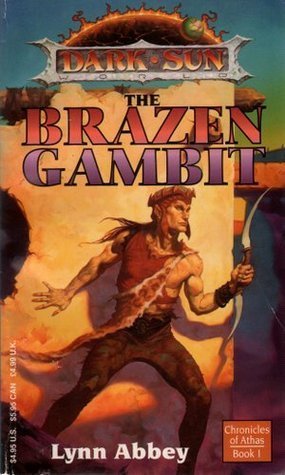
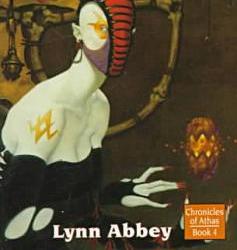
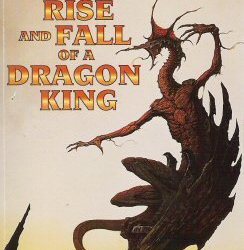
The Brazen Gambit, Cinnabar Shadows, The Rise and Fall of a Dragon King by Lynn Abbey
I'm sorry for starting this post off with licensed RPG novels, but these are good! And I don't mean "good for licensed RPG novels." I've read tons of them, and most are so bad! But these are actually fun. Good character development in a sword-and-sorcery world. It's also an ecological apocalypse world, with godlike beings oppressing common folks, leading to a lack of technological advancement and knowledge of the past.
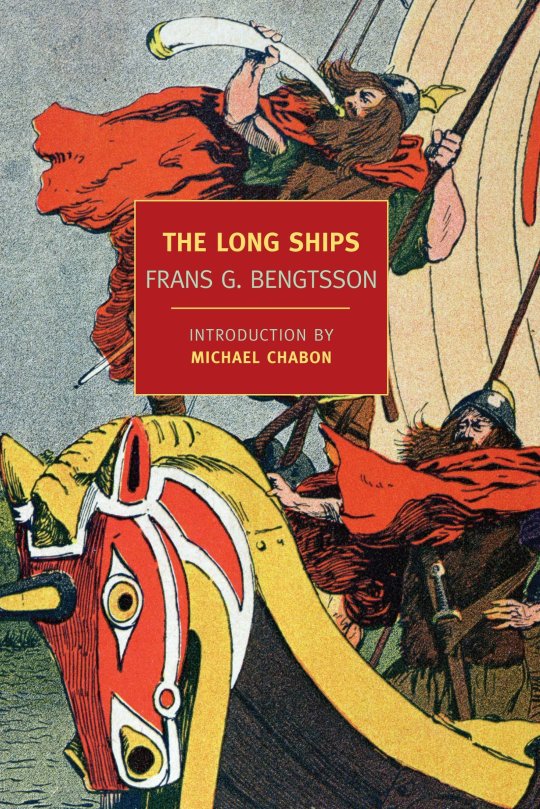
The Long Ships by Frans G. Bentsson
Written in the 1940s as a series of novellas, these stories take you on a tour of the Viking-era world, from Europe to the Middle East and beyond. Like a bunch of books on this list, this places them post-Bronze Age, so they're not officially "ancient world." But it gives a big spread of cultures, from the more clan-based Vikings to the bustling metropolises of Turkey. And it doesn't place any of them on any kind of linear advancement scale or whatever other gross way people "rate" cultures.
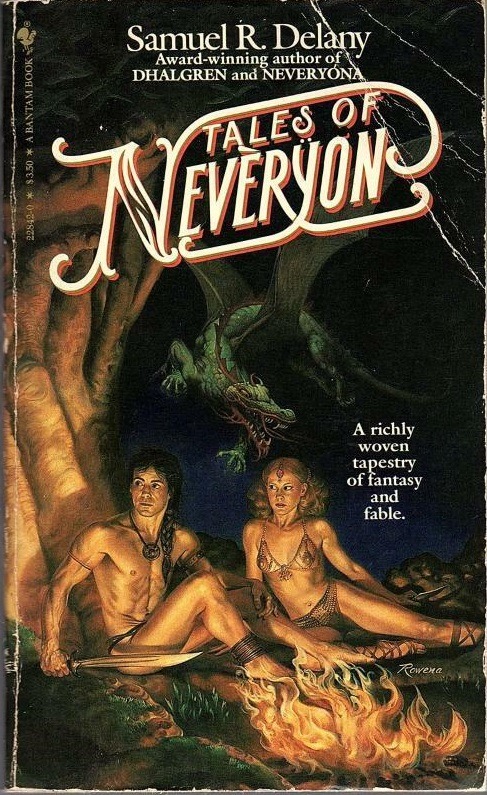
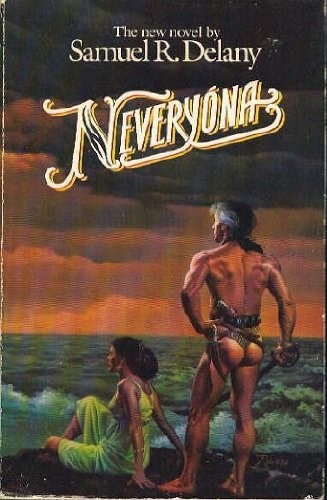
Tales of Nevèrÿon and Neveryóna by Samuel R. Delany
The master of weird sci-fi and gay historical novels, Chip Delany also wrote a fantasy epic. And it rules! Set on pre-historical(ish) Earth, these books describe the stories that maybe inform the myths we tell today? Dragons and slave revolts! A sort of "What if Game of Thrones was good?" series. Lots of good stuff about how people learn and how understanding expands.
I'm not listing the third book only because it's also a historical look at New York during the AIDS epidemic. It's an amazing book! But it strays from the "ancient world" aesthetic.
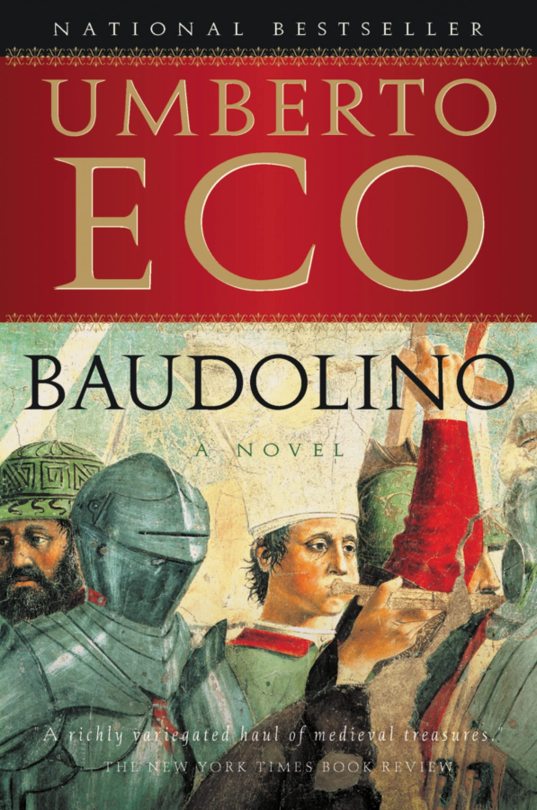
Baudolino by Umberto Eco
Another novel expressly set after the Bronze Age (this one starts in the 12th century). BUT it's about Medieval people's interaction with the knowledge they inherited from the past, specifically the myth of Prester John and the works of Herodotus.
I think I keep putting books like this on the list because roleplaying in a fantastical ancient world is not too far off from how Medieval people might have worshipped and referenced works from ancient Rome and non-European places.
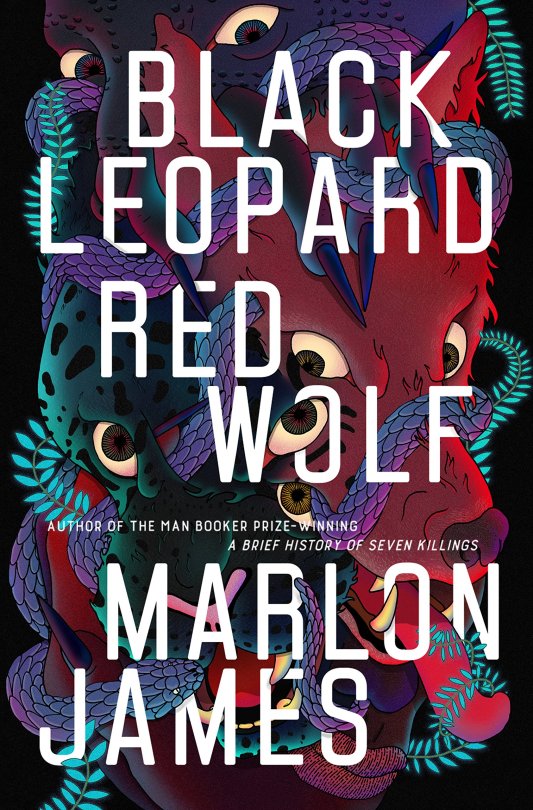
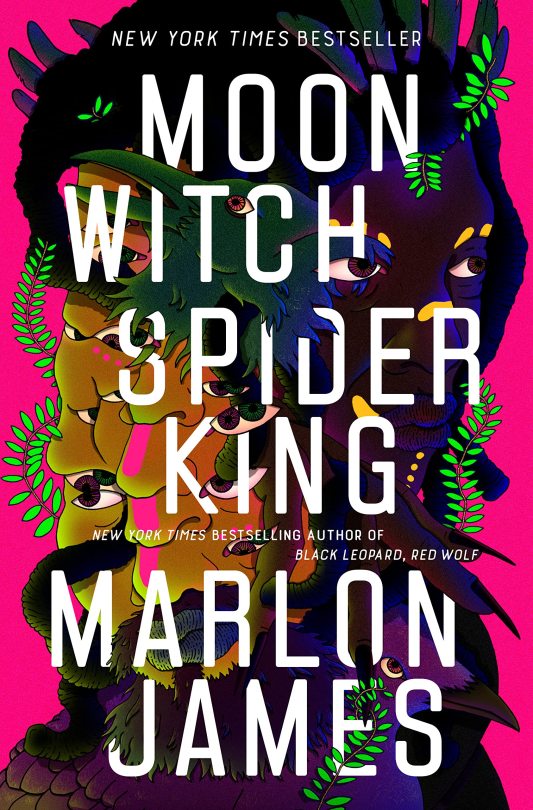
Black Leopard, Red Wolf and Moon Witch, Spider King by Marlon James
One of our best living writers! These are fantasy novels expressly set in a fantastical version of ancient/Medieval Africa. The books explore the same events from multiple points of view and are full of cool magic, awesome spirit combat, and a vast number of places and cultures that actively deconstructs most games's portrayal of fantasy Africa as a homogeneous place.
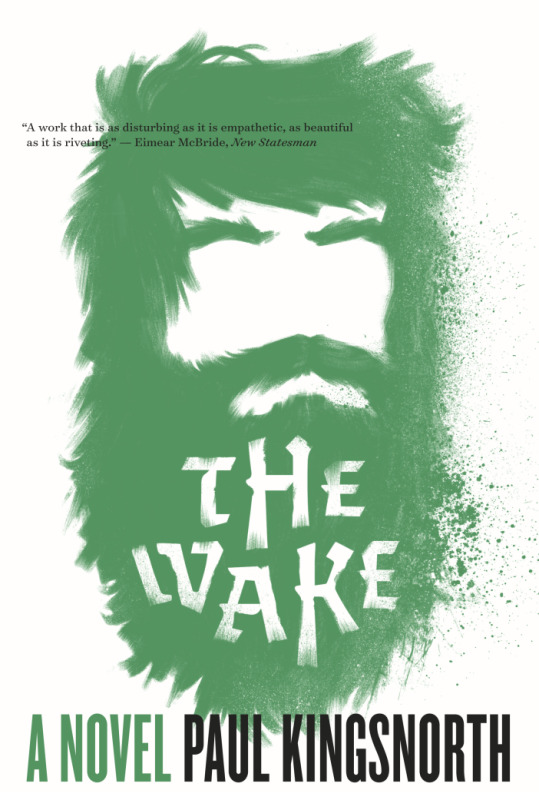
The Wake by Paul Kingsnorth
I think Kingsnorth has been outted as a sort of eco-fascist? I totally believe it, so feel free to skip this one. It's a historical novel set in England in 1066, as the Normans invade from France. It's written in a faux Middle English language and focuses on the lower classes and how they try to resist the invasion. A good reminder that "Medieval culture" (and especially the Renaissance as a time that "culture advanced") is often based on certain classes of society, such as rich people and/or men.
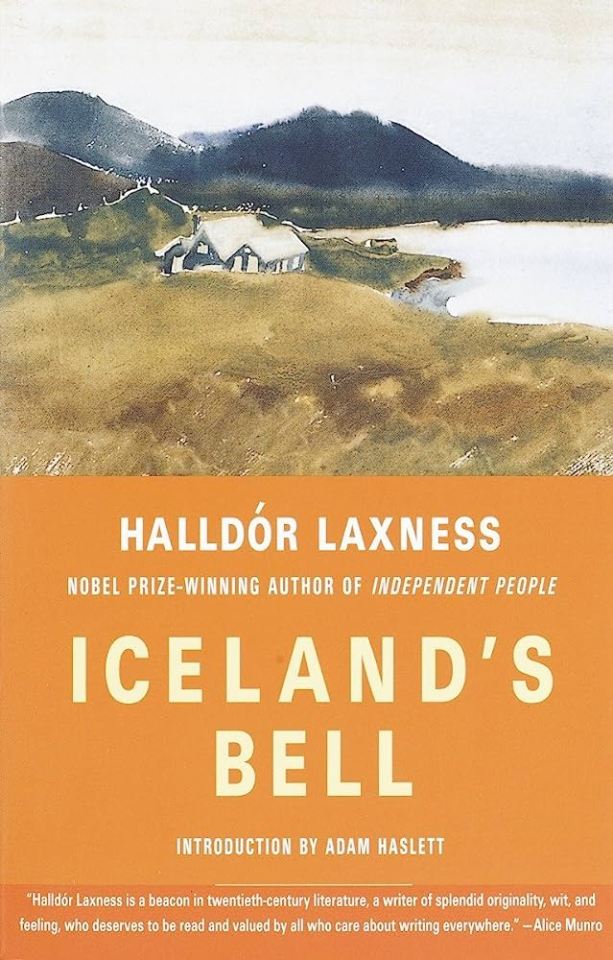
Iceland's Bell by Halldór Laxness
Speaking of how class intersects with technological advancement, this book is set in the 18th century, but it focuses on Iceland at a time when it was ruled by Denmark, and the lower classes there were under an enforced poverty. It's a book about how a rich Icelander was trying to recover the stories of his people in order to create a sense of national identity and resistance. But it's also a story about how a destitute man acts like a total weirdo when he's not allowed to fish in his own waters and is cut off from understanding his place in history.
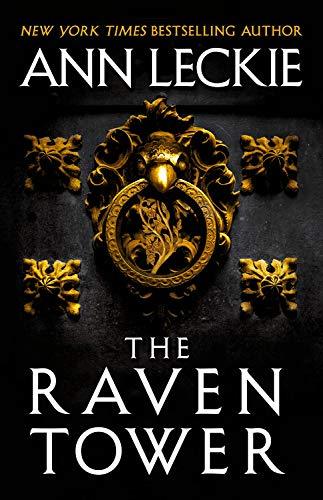
The Raven Tower by Anne Leckie
A big part of RuneQuest is people interacting with and enacting their gods. That's what this book is about! And it's about the strange vertigo that comes to people when they try to interact with the impossible timelines that gods exist on. Very good stuff.
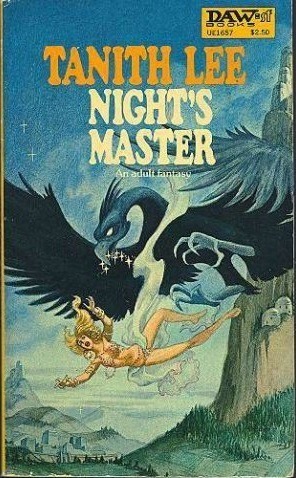
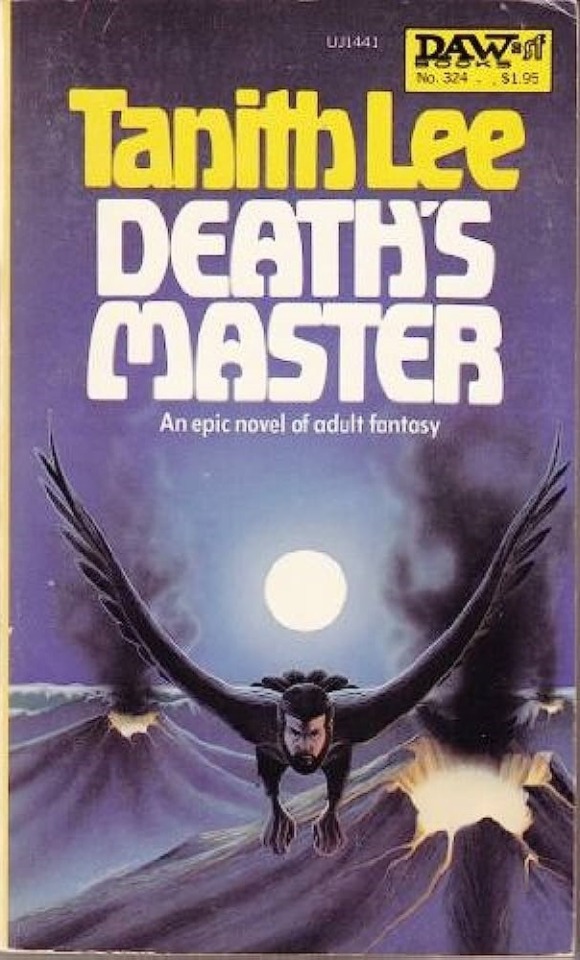
Night's Master and Death's Master by Tanith Lee
Ostensibly set on Earth back when it was flat and demons roamed the world, which is basically RuneQuest. Sort of like a series of hornier, gay bibles? With lots of gender fuckery, fun sex, and cool monsters.
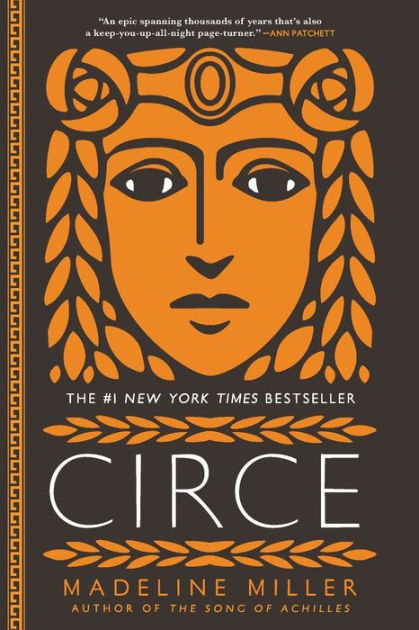
Circe by Madeline Miller
The story of the witch from The Odyssey, told from her point of view. Beautiful prose, tragic and beautiful characters, and a great share of mythical strangeness. Perfect if you want to learn how to run NPCs that are adversaries without being shallowly evil.
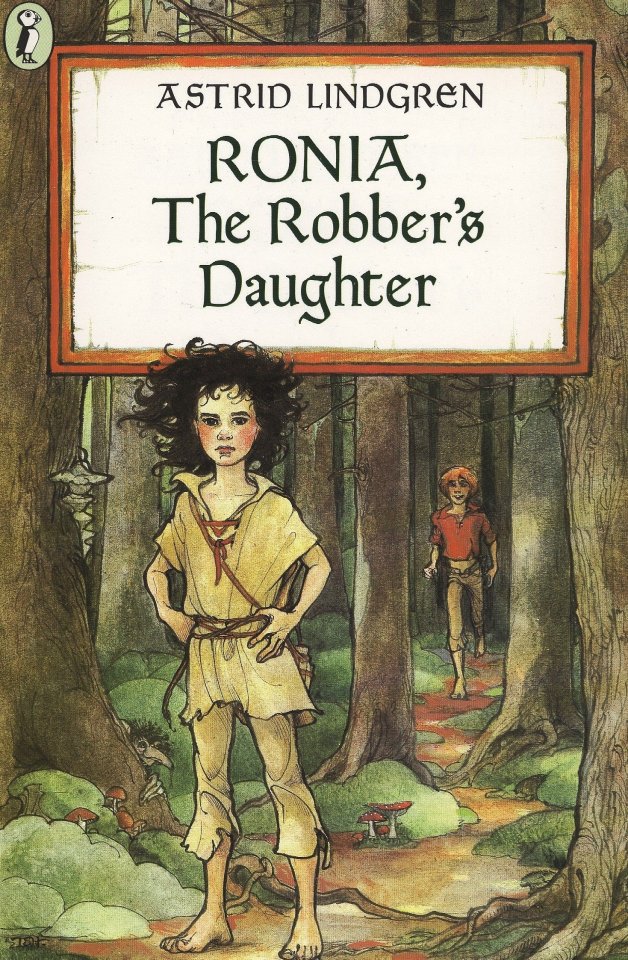
Ronia, the Robber's Daughter by Astrid Lindgren
Semi-Medieval again, but low class and vague enough that it could exist throughout ancient history. The daughter of a robber grows up in a tower full of robbers and generally has a wonderful time. Lots of weird monsters live in the woods, and there's a great starcrossed romance with someone from a rival robber gang. Perfect inspiration if you're running some cattle-raiding runs in RuneQuest; this is how to make robbers fun and sympathetic.
Read the book, watch the 1984 Swedish movie (which includes a great comedic scene of full-frontal dudity), and then watch the Studio Ghibli series.

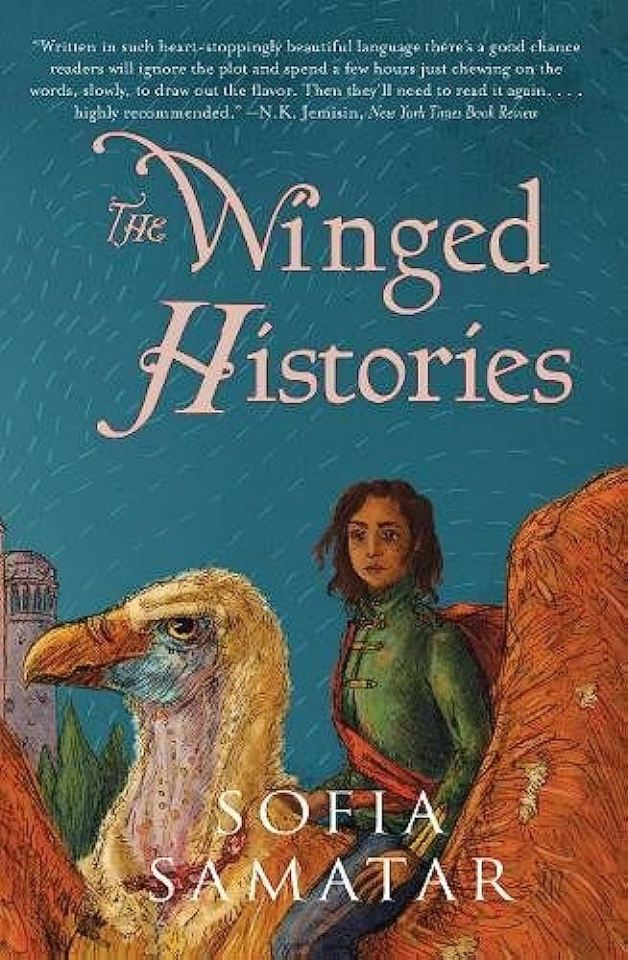
A Stranger in Olondria and The Winged Histories by Sofia Samatar
Set in a world of pepper farmers and religious fanatics who worship a mysterious inscribed stone, these books do a great job of showing how people might interact with religion, rival cults, and mystery rites. It also portrays literacy and learning to read in places where it's gated behind social gatekeeping. And once again, the prose is beautiful.
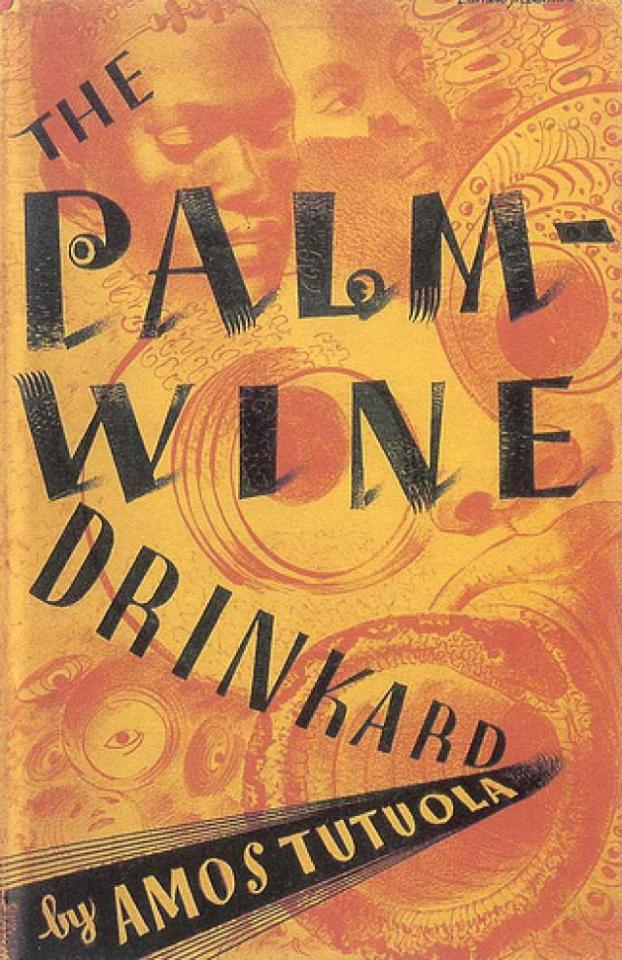
The Palm-Wine Drinkard by Amos Tutuola
The first African novel published in English outside of Africa, The Palm-Wine Drinkard is a funny, hallucinogenic story about getting drunk, stumbling through weird landscapes, and encountering fantastical spirits and people.
Tutuola also wrote My Life in the Bush of Ghosts, the inspiration for the famous(?) David Byrne/Brian Eno album. I haven't read it yet, but I'm keeping an eye out!
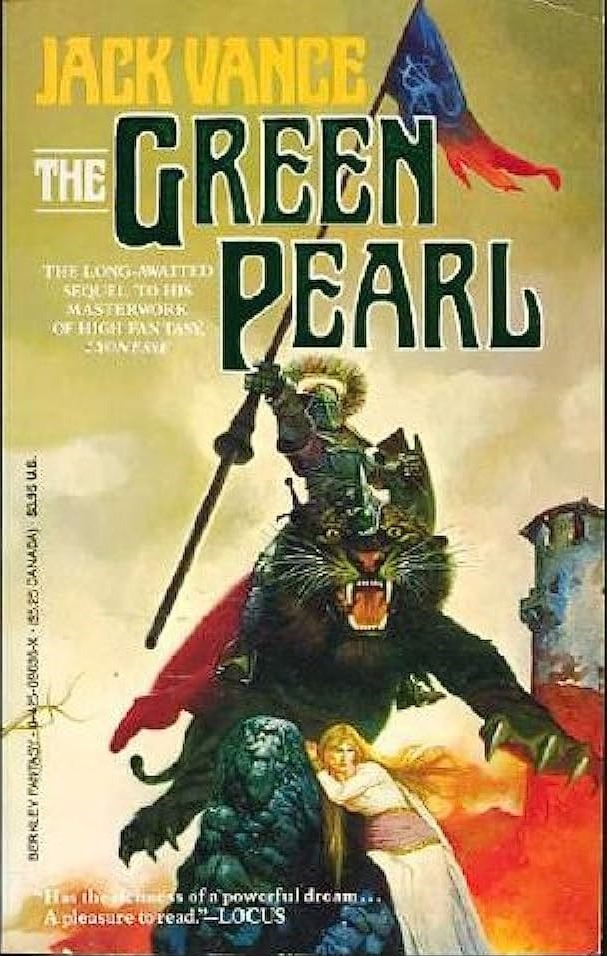
The Green Pearl by Jack Vance
This is a sequel to Lyonesse, which I haven't read because I love staring in the middle of things. Set around a mythical British Isles when Atlantis was still above the sea and part of the group of islands. Some great wizard shit, warring clans, romance, and a wizard whose name is fucking Shimrod (in case you need more convincing).
Those are my 20 novel recommendations! I'm gonna come back to add some nonfiction, comics, and myth resources for running games in fantastical ancient worlds. You can read SpeedRune, my ancient fantasy game, here.
206 notes
·
View notes
Note
hi! I really enjoyed your last ask about the things that bother you in historical fiction. do you have any particular recs for books that do material culture and/or engagement with realities of history well? my personal favorites are the wolf hall series, I absolutely love those books for that reason.
ugh i really have nothing particularly obscure here! I also liked those aspects of Wolf Hall, and was going to suggest it before i saw it in the second half of the ask :)
i like Mary Renault's Greek stuff a lot (though her Alexander the Great trilogy a little less than the others) - the plague winter in Athens in The Last of the Wine is really harrowing in a good way.
Eco is the obvious suggestion here, but The Name of the Rose has overshadowed Baudolino and The Island of the Day Before - I adore Baudolino, a picaresque journey across a 13th century Europe where historical reality and folk belief overlap and coexist, and Island of the Day Before took me two reads to get into, but it was worth it.
There were parts of Dorothy Dunnett's King Hereafter (Macbeth, but more historically real) that didn't quite work for me, mostly her characterization of Lady Macbeth, but I really loved the way she treats the world of the early middle ages. (I haven't read her Lymond series, but I have the first one, and I'm pretty excited for it).
i'm sure there are others but my brain turns off when I'm asked for recs!
79 notes
·
View notes
Text
Thank you to the wonderful @theatredelabsurde for doing hers and reminding me! :)
Books read in February
The Living Mountain, Nan Shepherd
May We Be Spared to Meet on Earth, Russell A. Potter
Soumission, Michel Houellebecq
Death in Venice, Thomas Mann, tr. Michael Henry Heim
James Fitzjames, William Battersby
Eugene Onegin, Alexander Pushkin, James E. Falen <3 <3 <3
Preliminary Materials for a Theory of the Young-Girl, Tiqqun
Baudolino, Umberto Eco, tr. William Weaver [DNF]
Dindseanchas na mBlascaodí, Tomás Ó Criomhthain
Short stories / novellas / dramas
M. Jocaste, Guy de Maupassant
Le nécrophile, Gabrielle Wittkop*
Les Possédés, Albert Camus <3
Essays / etc.
The Relations of Art to Reality, N. G. Chernyshevsky
Speech on Pushkin, Fyodor Dostoyevsky, tr. Alan Kimball
Cath Catharda (‘The [Roman] Civil War’), tr. Whitley Stokes - long prose poem, Irish adaption of Lucan's Pharsalia
* = re-read
10 notes
·
View notes
Note
Hi! Your recent post about lady of the forest made me want to find some more accurate and cheerful medieval fiction but I'm not sure where to start! Would you have recommendations of books you particularly enjoyed?
Now you have me wondering: has truly cheerful fiction set in the Middle Ages been written since Chaucer? (Discuss.)
More seriously: the following list is divided between Umberto Eco and kids' books, more or less, with some detective novels thrown in. As for "accuracy" ...I don't ask for much (she said plaintively), and I quite like fantastical narratives. I just ask for, essentially, authorial goodwill towards the period they're writing about: not in the sense of loving it, necessarily, but trusting that it was recognizably rational and human.
Umberto Eco, Baudolino (from a moment of great and cynical violence, a marvelous journey begins with an act of kindness)
Umberto Eco, The Name of the Rose (never has 14th-century heresy been funnier. And while there are non-zero mirthless medieval monks here, the point is that they're an exception... if possibly one enabled by a rule. I don't want to over-explain this book, but I love it.)
Barry Unsworth, Morality Play (this book is just weird enough to escape the Gloomy Middle Ages accusation, I think, because it's so clearly intended to be a commentary on human relationships, communities, etc. across time)
Ellis Peters, Brother Cadfael series (these books are very sweet and gentle and set during a period of unusual violence and chaos, in England's 12th-century interregnum. Meanwhile, a crusader-turned-monk grows plants, teaches novices, rolls his eyes at the prior, roots for young love, chats with God and the saints, and fights crime! I love him.)
Caroline Roe, Isaac of Girona series (in 14th-century Iberia, a blind Jewish doctor fights crime... and flirts with his wife, forges relationships with his young adult daughters, adopts a stray child, and is generally a delight.)
Karen Cushman, Catherine Called Birdy (precocious 13-year-old in late 13th-century England observes the world around her and is unimpressed, as 13-year-olds are wont to be. This world is one of multilingualism, love, faith, mischief, the joy of sweet figs and the annoyance of fleas. It's quite charming. A weird thing about Cushman's YA novels is that her afterwords are always like "and so we see that the Middle Ages were in many ways Dark :( and superstitious :( and backward :(" and... lady did you read your own damn novel???)
Marguerite D'Angeli, The Door in the Wall (I love this book; it's a comfort reread for me. In 14th-century England a young boy, Robin, is alone because of his parents' respective social duties. He plays with his friends in the street and teases his servants... and then falls ill, becoming paralyzed as a result. So he ends up on a road trip with a monk, and living in a hospital, and learning how to play music, and... it's just extremely lovely.)
If anyone knows of more non-bleak medieval fiction, I'd love to know about it (if it's detective novels I probably do, but one never knows!)
ETA! I was thinking about medieval Europe, but Omaima al-Khamis’ The Book Smuggler is set in the Middle East and North Africa in the 11th century, and it is superb.
230 notes
·
View notes
Note
That is a GREAT list and I would like the full top 25 please :)
Well thanks! Okay, 13 more then, also in alphabetical order. The other list was exclusively fiction while this is a mix.
All Things Great And Small
Anne of Green Gables
A Walk In The Woods
Baudolino
Between Two Fires
Cider House Rules
Food In History
Into Thin Air: A Personal Account of the Mount Everest Disaster
Lonesome Dove
Perfume: The Story of A Murderer
Stiff: The Curious Lives of Human Cadavers
The Time Traveler’s Guide To Medieval England
This Is How You Lose The Time War
15 notes
·
View notes
Text
tag someone you wanna know better :]
thank you so so much @girlvasari @girldante @larmegliamori for the tag <3
favourite color: purple
last song you listened to: take a chance on me
last movie: ugh it was quando by walter veltroni and it was bad
currently watching: nowadays nothing really, but lately i've been rewatching some gentleman jack episodes
shows you dropped this year: surprisingly none
currently reading: baudolino by umberto eco (<3)
currently working on: ancient greek exam... (sparateme)
current obsession: the usual methinks, but I feel like my shakesperean phase is coming back (i want to draw something from m*cb*th so bad)
tag:
@girlguidrigildo @headofmars @girlpetrarca
8 notes
·
View notes